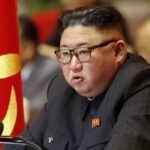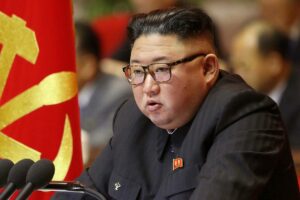The majority of the East Africa Member States have experienced conflicts since independence, and some countries remain in protracted conflict situations decades later. The region faces state and human security challenges caused by armed conflict, political crises, democracy, and governance deficits. These conflicts have negatively impacted the life of the population in general and the life of young people, as more than 60% of the East African population is composed of youth under the age of 25.
The UN World Population Statistics estimates that there are about 1.2 billion 15-24-year-olds in the world and that by 2030, the target date for the sustainable development goals, the number of youths is projected to have grown by 7 per cent to nearly 1.3 billion in the world. This figure is expected to grow by 2050, with the population of countries in this region, including the Democratic Republic of Congo, Ethiopia, Tanzania, and Uganda, expected to double and contribute significantly to more than half of the world’s population growth.
The reality is that armed conflicts, political tensions, governance deficits, ethnic divisions, inequality, poverty, and unemployment, as well as other emerging threats to peace and security such as climate change, terrorism, transnational crimes, and even pandemics such as COVID-19, have a destructive impact on a country’s development. The demographic argument is one of the most powerful and compelling reasons for recognizing the role of youth in building peace. Africa’s population is comprised mainly of the youth (with the median age at approximately 19.7), and there is a burgeoning need within the continent to engage young people in the peacebuilding agenda, given their immense potential and agency to support and move the peace and security agenda forward.
Young people are often the most affected by conflicts and, as such, have a personal stake in creating and maintaining peace.
Their active participation in dialogue, advocacy, and negotiation can lead to the formulation of effective policy frameworks that address the root causes of conflicts and foster peaceful coexistence.
In addition, youth can leverage their social media reach and digital skills to raise awareness of peacebuilding efforts, promote cultural understanding, and amplify the voices of marginalized communities. They can serve as agents of change, inspiring others to act and contributing to Youth involvement in peacebuilding efforts is essential, and their contributions should be acknowledged and valued. By empowering young people to take an active role in promoting peace, societies can harness the potential of their youth to create lasting positive change.
The High-Level Ministerial Conference, held from 9 until 12 May 2023 in Burundi, is the first of its kind for the East Africa Region and hopes to bring together regional economic communities, regional mechanisms, government officials (mainly from the Ministries of Youth Affairs and Foreign Affairs), National Youth Councils, Youth-led civil society organizations and development partners in East Africa region for a four-day program that will primarily focus on supporting, promoting and investing in the youth, peace, and security agenda for the region while affording a platform for the ongoing continental discussion on the African Union theme of the, “Silencing the guns” and emerging threats to peace and security for the region.
Source : International IDEA















